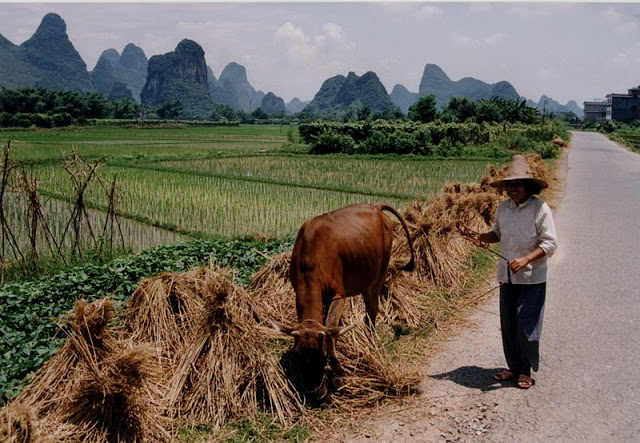
From Poor to Well-off: Why Aren’t the Chinese Consuming?
November 2, 2009
Regional (Dis)Unity in Southeast Asia
November 16, 2009By: Project 2049 Institute |
For a government founded in the name of the rural proletariat, the Chinese Communist Party has, since the Deng era, been remarkably focused on urban industrial development. Heroic farmers have been replaced on billboards with brilliant businessmen as the face of China’s economic renewal. But for the first time since 1979, the government appears to be genuinely alarmed about the state of the countryside.
Decades spent fostering urban growth has left China’s rural economy in shambles. Urban incomes (US$1,907 average) are nearly four times higher than rural incomes ($572).
Over the last few years, the government has set out to spur development in rural regions. The government repealed a 2,600 year-old tax on agriculture, created subsidies for farmers’ medical care, and exempted rural students from most tuition fees. The PRC also has tried to further integrate peasants into nation-wide markets and information networks, subsidizing rural purchases of cell phones and computers. In spite of these moves, the economic gap between the urban and rural populations continues to widen because of significantly lower income growth and higher inflation in rural areas.
So the government has called in the cavalry. This week, the National People’s Congress (NPC) will pass a new electoral bill that will equalize representation for rural and urban districts. The bill would erase the four-to-one advantage in urban representation per person in the NPC (currently there is one representative for every 240,000 urban or 960,000 rural residents). It will be the first time since Mao’s chairmanship that there will be more rural than urban delegates.
Critics who consider the NPC to be merely a rubber-stamping organization will likely dismiss this as a cosmetic change. But the move is significant for rural development for at least two reasons: First, it will bring to Beijing more rural activists like CCP delegate Hu Anmei. Hu, a former schoolteacher from the tiny rural village of Taoyuangou, has burst onto the national scene as a voice for rural development, and appears to have the ear of some (at least the media) in Beijing.
Second, even if reorganizing representation does not directly improve the rural economy, it makes it clear that the Party leadership is very concerned with the rural economy. Not only does the move give us an indication of policies to come, but it also sends a dramatic message to decision-makers throughout China – that it is once again time to live up to the name “People’s Republic.â€




